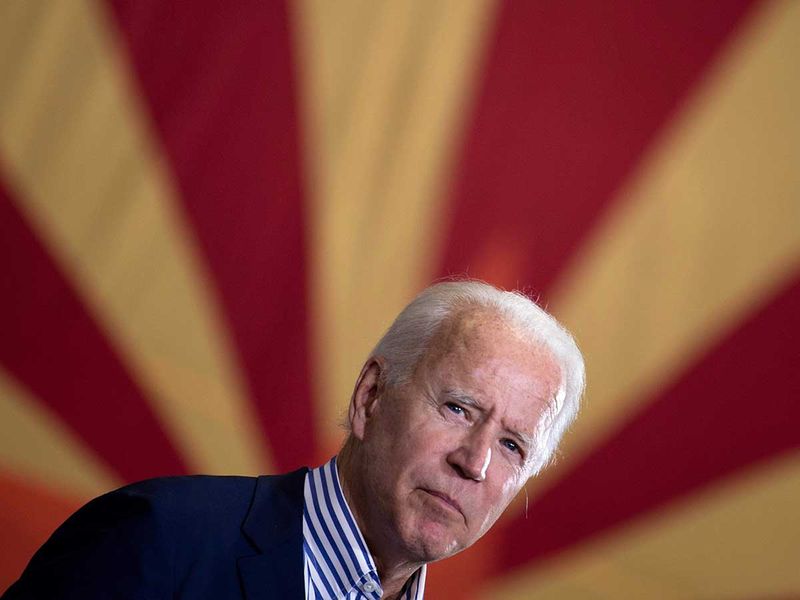
When discussing the agenda known as “Bidenomics,” liberals often treat the Rust Belt as the ground zero of US presidential politics. Because of lingering trauma from Donald Trump’s 2016 victories in the region, they look for signs that President Biden’s efforts to rebuild the nation’s manufacturing base might again put the region firmly in the blue column for the long term.
But that focus misses a story hiding in plain sight. Bidenomics has the potential to reshape presidential politics in another way: by hastening a transformation that’s making Sun Belt states such as Arizona and Georgia increasingly important to the Democratic path to an electoral-college majority.
Those two states are seeing outsize gains from three major economic bills that Biden signed in 2021 and 2022, which are spurring massive investments in green energy, semiconductor manufacturing and infrastructure.
“If you drill down on the geography of Bidenomics, it’s as much a Sun Belt story as an industrial heartland one,” Mark Muro, a senior fellow at Brookings Metro, told me.

Reinforcing emerging trends
In Arizona, according to White House figures, private companies have announced about $69 billion in new investments and projects spurred by federal incentives for clean energy production in the Inflation Reduction Act and for the semiconductor industry in the Chips Act.
Biden’s massive infrastructure bill has directed $3.8 billion in public spending toward the state’s roads, bridges, climate resiliency, and transportation and water systems.
Georgia, meanwhile, has seen announcements of private-sector investments in renewable energy and semiconductor production totalling $33 billion, those figures show. And $5.3 billion in public infrastructure investment has been directed to the state.
Those two states have landed nearly one-fifth of all nationwide private-sector industrial investments triggered by those bills, according to a Brookings analysis of White House data and announcements by companies.
With Arizona emerging as a hub for chip production, and Georgia becoming a “battery belt” production centre for electrical vehicles, Muro notes, these federal subsidies are “reinforcing emerging trends.”
Trump's vulnerability
Trump’s 2024 candidacy seems particularly vulnerable to these developments. Whereas Trump, as president, largely failed to rebuild US manufacturing, Biden has presided over an explosion of manufacturing construction, including throughout red America.
As the Atlantic’s Ronald Brownstein argues, Biden has ushered in “the most concentrated burst of public and private investment since the 1960s,” to the benefit of all Americans — including those in deindustrialised areas that Trump long accused Democrats of abandoning.
The Rust Belt, of course, is associated with the postindustrial social decay that Trump capitalised on in 2016. So it’s often asked whether Bidenomics can reverse the drift of working-class Whites away from Democrats by addressing the economic conditions that purportedly alienated them.
But a broader focus is warranted. A big unknown is whether Arizona and Georgia are becoming states that Democrats might win regularly going forward. Not only did Biden win both in 2020, but all four senators representing them now caucus with Democrats, an extraordinary development for two once-reliably-red states.
As Noah Smith explains, we’re undergoing a paradigm shift that’s about more than restoring manufacturing jobs. Seismic events such as the Covid-19 pandemic and the war in Ukraine have demonstrated the vulnerability of our supply chains and laid the groundwork for the public to embrace an expansive federal role in building US industrial capacity as the way to safeguard our future.
Biden can argue that a Trump victory in 2024 would undo all of Bidenomics’s investments and the economic accomplishments they appear poised to unleash. To build the case, the president can point to gains in Arizona and Georgia — states that, by happy coincidence, are also likely essential to Trump’s defeat. — Washington Post
Greg Sargent is a noted political columnist








